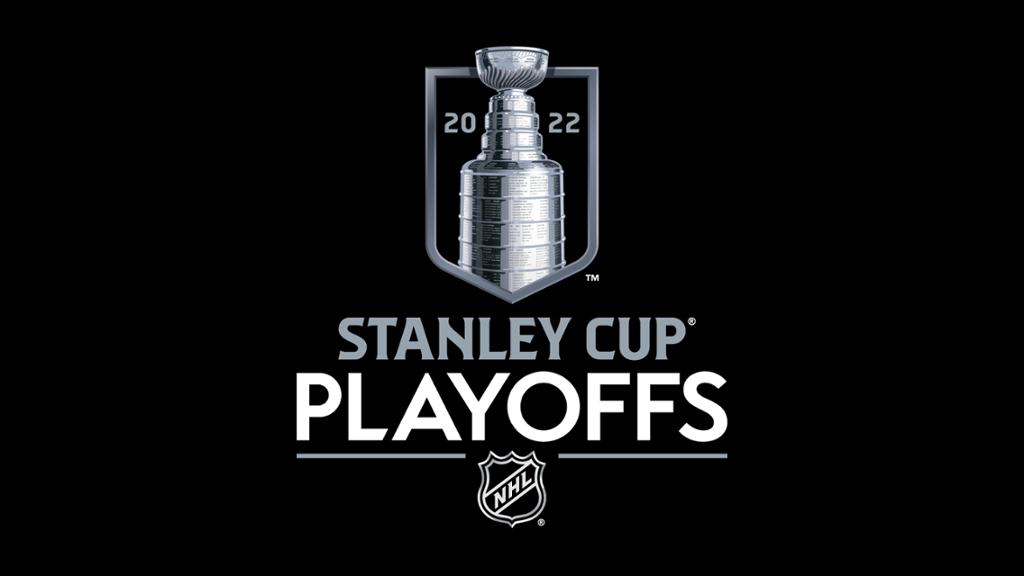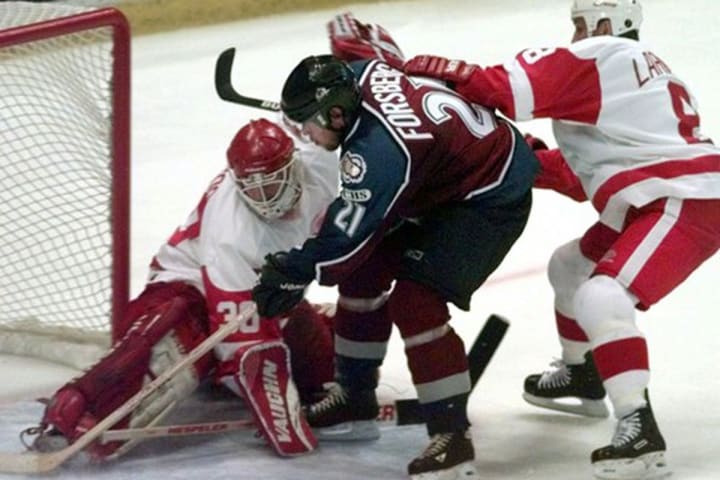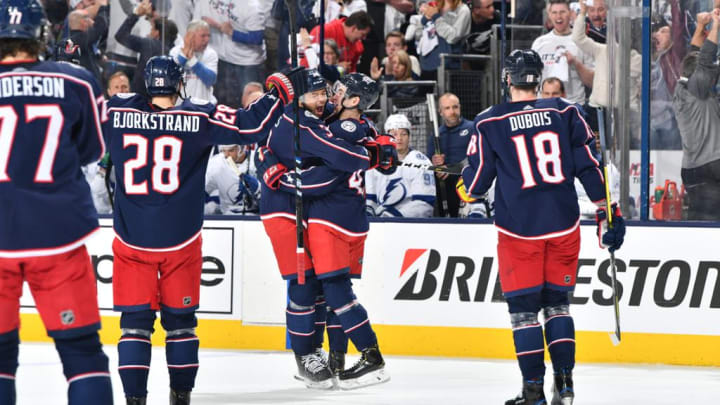Top 3 Reasons to Love the Stanley Cup Playoffs
Listing the three best attributes of the NHL's perennial playoff tournament

We all really enjoy and drink in the phenomenal late spring/early summer festival known as the Stanley Cup Playoffs, don't we? There are many reasons why we should. The National Hockey League's perennial tournament is the best period of sports on the calendar; it's high-paced, it's chaotic, and most of all, it's nail biting. It's an amazing journey all the way--from the first puck drop of the opening games, to the final moment where the Stanley Cup is awarded.
I've enjoyed every facet, every nook and cranny of the Stanley Cup Playoffs for so long, and while the list of reasons to enjoy this tournament is a long one, there are three that stand out the most. They are as follows:
3. The Rivalries

The Stanley Cup Playoffs have taken the phrase, "familiarity breeds contempt," to a whole other level for decades. This was due to the old format from the 1980s and early 1990s where the first two rounds of the playoffs were purely divisional. That format allowed teams to face each other at least 10 times a season, and that creates a lot of bad blood. The 1993-94 season saw the format change into a conference-based format, eliminating divisional playoffs, but rivalries remained intense.
The biggest example is the classic rivalry between the Colorado Avalanche and the Detroit Red Wings, which began during the 1995-96 season, the year that the Quebec Nordiques moved to Denver and became the Avalanche. These teams became bitter rivals once they met in that season's Western Conference Final, which the Avs won in six games, and their rivalry became more and more intense as the seasons progressed. The two teams met five more times in the playoffs, and overall, each team has three series wins. The format returned to divisional (for the most part) in 2013-14, and the rivalries are more intense as a result.
2. Parity

No league boasts more parity than the NHL. Look at the other three leagues. In the NBA, if you have the best record, you're winning the whole thing. In the NFL, the #1 seed in the conference pretty much guarantees a Super Bowl appearance, and even though MLB has seen Wild Cards go all the way, it still helps to win 100+ games and finish on top of the league. In the NHL, a team's regular season record and point total? Just numbers. The Stanley Cup Playoffs does not care how many wins and points you racked up. Don't believe me? Just ask the Tampa Bay Lightning.
There are many glaring examples of how deep the NHL is. In 2006, the Edmonton Oilers finished as the #8 seed in the Western Conference, and came up one win short of the Stanley Cup. In 2012, the Los Angeles Kings were #8 in the West and managed to win the Stanley Cup, which included defeating the Presidents' Trophy winning Vancouver Canucks in a five-game opening round series. The biggest example came in 2019, which saw the Tampa Bay Lightning win 62 games, tying an NHL record. They faced the Columbus Blue Jackets in the opening round, and everybody figured that it would be a short series. After all, this was a 62-win team with award candidates everywhere, playing against the only team who had never won a playoff series. What we saw was the ultimate shocker: the Blue Jackets swept the Lightning. Not just defeated. SWEPT. That's how the Stanley Cup Playoffs works. No team is safe from potential upsets.
1. Overtime
Without question, the greatest attribute of the Stanley Cup Playoffs comes in the form of one word: overtime. Since 2005, regular season games have implemented a five-minute overtime, with a shootout following the period (if needed). In 2015, overtime began playing under a three-on-three format after years of four-on-four. Not in the playoffs! In the Stanley Cup Playoffs, overtime is the standard five-on-five, and it's 20 minutes--the same length as a regulation period. Most important of all...no shootouts! If it's still tied after 20 minutes, another OT is played, and another one, and another one. In short, teams play until someone scores, and it could take quite a long time. We've seen double, triple, quadruple, quintuple, and yes, even sextuple overtime has been played!
I love marathon OTs with a passion, though as an Avalanche fan, I prefer that my team scores as quick as possible in OT (knowing full well that the Avalanche's first Cup was won in triple overtime). I literally beam when a playoff game is on the verge of overtime, and I want my OTs long. They have to be at least two periods, but if they have to be just one period, I like it if it passes the halfway mark (10 minutes). I've seen my share of marathon OTs; the five OT thriller between the Pittsburgh Penguins and the Philadelphia Flyers in 2000 comes to mind. A recent example came in the 2020 bubble; Game One of the Eastern Conference Quarterfinals between the Tampa Bay Lightning and the Columbus Blue Jackets needed five overtimes, and it was Brayden Point who won it for the Bolts. Marathon OTs are thrilling and exciting, but if the team you're cheering for is playing in one, well, the only advice I have is, "cross your fingers."
About the Creator
Reader insights
Nice work
Very well written. Keep up the good work!
Top insights
Easy to read and follow
Well-structured & engaging content
Expert insights and opinions
Arguments were carefully researched and presented
On-point and relevant
Writing reflected the title & theme






Comments
There are no comments for this story
Be the first to respond and start the conversation.